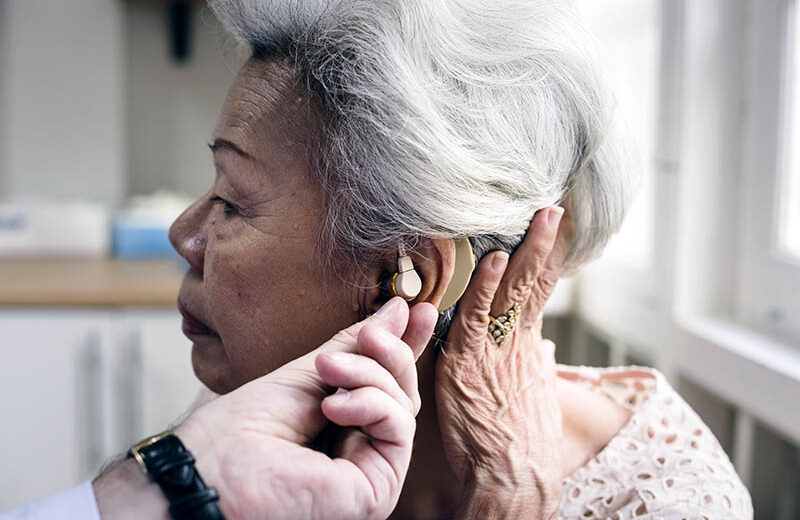High-frequency hearing loss is a common auditory impairment that can impede the ability to hear high-pitched sounds. It is prevalent among older adults, who often face age-related hearing loss, and people who have been exposed to deafening noises for an extended period. This type of hearing loss can significantly affect an individual’s quality of life, and it is crucial to be aware of its causes and symptoms.
Understanding High-Frequency Hearing Loss
What are the Signs?
Individuals suffering from hearing loss often struggle to discern certain consonants, such as s, f, or h, which are emitted at a higher pitch. This can result in difficulty understanding speech, particularly in noisy environments or when using the telephone or watching TV. Speech may sound muffled, and it may become harder to hear the voices of women and children and birds singing or devices beeping. Background noise can exacerbate this effect. Those with this type of hearing loss often report a sensation of being able to hear but not understand.
Getting Diagnosed
The diagnosis of high-frequency hearing loss is typically conducted through a hearing test administered within a sound-treated booth at a hearing clinic. The test, which an audiologist or hearing instrument specialist usually conducts, yields results plotted on an audiogram. In the case of high-frequency hearing loss, the audiogram will show a slope to the right, indicating difficulty in hearing frequencies between 2,000 and 8,000 Hz. A speech-in-noise (SIN) test may also assess the individual’s hearing capacity amid noisy environments. Depending on the severity of hearing loss, an individual may be classified as experiencing mild, moderate, moderately severe, severe, or profound hearing loss.
What are the Causes?
High-frequency hearing loss occurs when the small sensory hearing cells, known as stereocilia, located in the inner ear become damaged. These cells convert the sounds collected by the ear into electrical impulses, which the brain subsequently interprets as sound. High-frequency hearing loss can affect people of any age, and its underlying causes can be diverse and varied.
Age-Related Hearing Loss
An early indication of age-related hearing loss is the gradual difficulty comprehending speech in noisy environments. This common symptom may go unnoticed until it becomes advanced.
Noise-Related Hearing Loss
Millions of Americans have noise-induced hearing loss. The damage can occur suddenly from sudden, loud exposure to noise or gradually from prolonged exposure to noise levels exceeding 85 decibels.
Genetics and Hearing Loss
It would be prudent to investigate one’s family history for any instances of high-frequency hearing loss. Such cases within one’s ancestry may indicate a heightened susceptibility to developing similar conditions.
Hearing Loss from Medications
Certain types of medication can possess ototoxic properties and be harmful to auditory health. It is crucial to exercise caution when taking such medication and to consult a medical professional if you have concerns regarding their effects on your hearing.
Meniere’s Disease
Meniere’s disease is a condition that affects the inner ear and typically manifests between the ages of 30 and 50. Common symptoms include fluctuating hearing loss, tinnitus, and vertigo, characterized by intense dizziness. In extreme cases, the condition can also lead to low-frequency hearing loss.
What are the Treatment Options?
High-frequency hearing loss is an irreversible condition that can significantly impact one’s quality of life. As a result, selecting the most appropriate hearing aid is essential. For individuals experiencing high-frequency hearing loss, the receiver-in-the-ear (RITE) style with a dome in the ear canal is recommended. It is important to note that individuals may require an adjustment period when first using hearing aids, especially if they have experienced untreated hearing loss for an extended period.
How You Can Avoid High-Frequency Hearing Loss
High-frequency hearing loss is an irreversible condition that can sometimes be prevented. The best preventive measure is protecting your hearing from exposure to loud noises, especially those exceeding 85 decibels. It is recommended to keep the volume of personal electronic devices low and wear earplugs in noisy environments such as shooting ranges, snowmobile rides, live concerts, and sporting events.
If one suspects a hearing loss, scheduling an appointment to undergo a hearing test is highly recommended. Studies have indicated that many individuals who wear hearing aids convey high satisfaction with their devices and participate in an enhanced quality of life compared to those who forgo seeking treatment.





